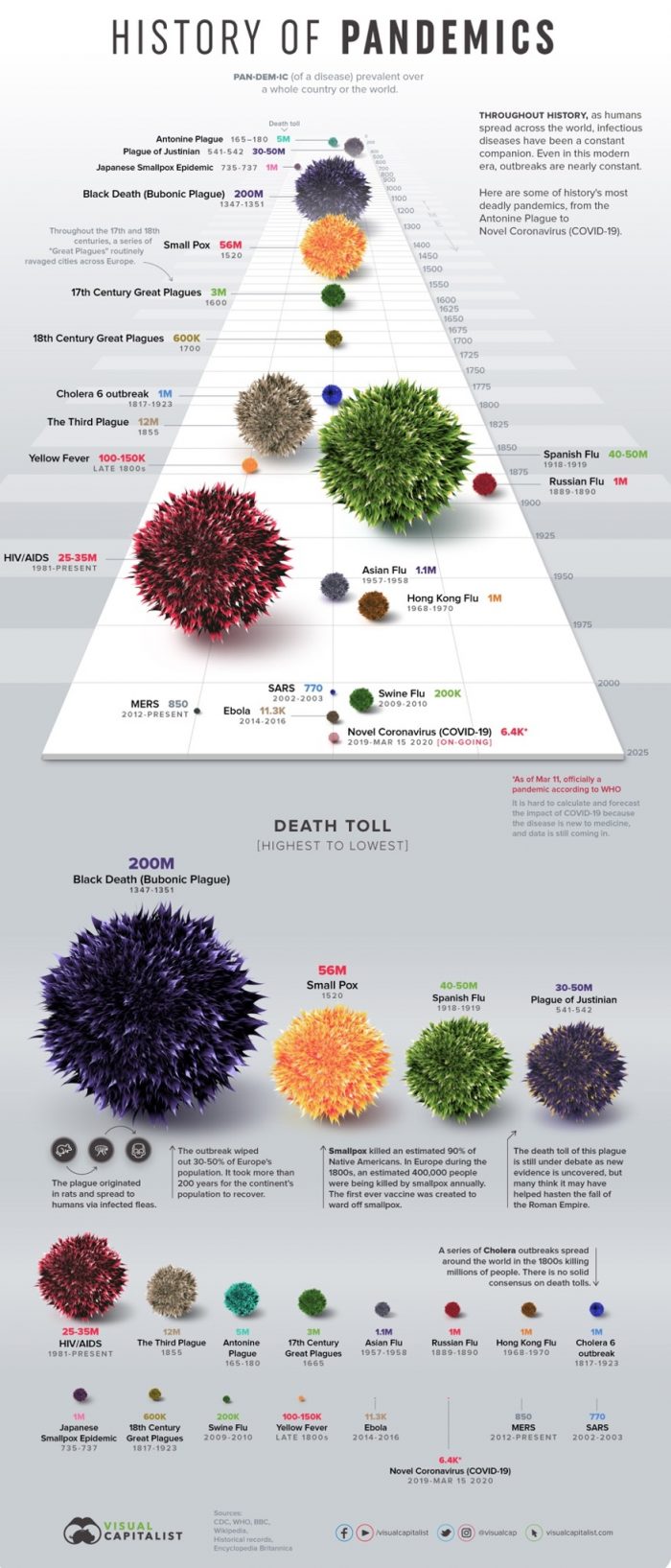
This timeline shows the history of major pandemics in the world, including dates and locations of outbreaks. The current outbreak of Ebola has already lasted longer than any other known Ebola epidemic, killing thousands in Africa and spreading throughout the world. Other notable pandemics include HIV/AIDS, West Nile virus, and SARS.
A pandemic is a worldwide outbreak of an infectious disease that spreads across a large number of countries, continents, or even the entire world. The word “pandemic” comes from the Greek ?????????? (pan-demicos), meaning “affecting all the people”. While many people have heard about influenza pandemics like the 1918 Spanish Flu and more recent outbreaks like SARS (severe acute respiratory syndrome) in 2003 and MERS (Middle East Respiratory Syndrome) in 2013, not everyone knows about other deadly outbreaks throughout history.
What is a pandemic? A pandemic is an epidemic that spreads across the globe. An epidemic is limited to a certain area or region, while a pandemic occurs across multiple countries, regions and even continents. They can spread quickly and have severe effects on entire populations worldwide.
There have been many deadly pandemics throughout history, but there have also been steps taken to stop them from spreading. The 1918 pandemic was the worst in history. It killed an estimated 50 to 100 million people, about 3% of the world’s population at the time. Most deaths were caused by the Spanish Flu, which started in 1918 and lasted until 1920. There have been many pandemics since 1918, including AIDS (1980s), Ebola (mid-1990s) and SARS (2003). However none of these were as deadly as the Spanish Flu or Black Death—a disease that killed nearly half of Europe between 1347 and 1351
It’s always important to keep an eye on what’s going on in our world, whether it’s an upcoming election or a major pandemic. When we learn about history’s greatest epidemics, we may better understand why they happened and how they could affect us today.
